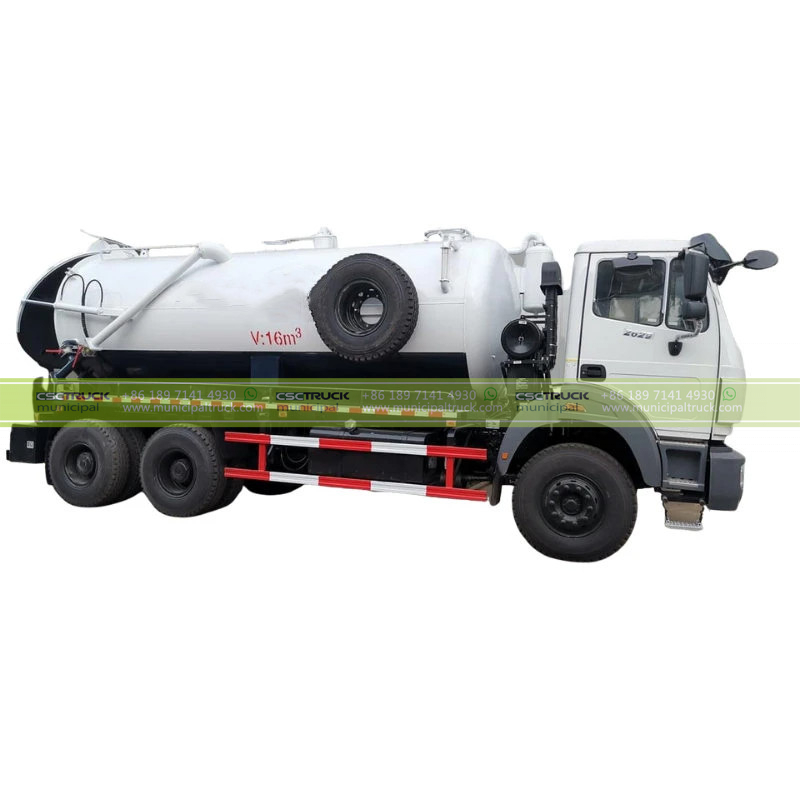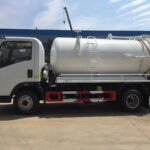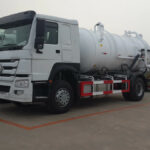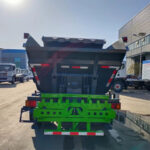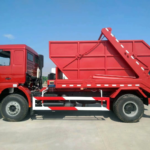Sludge collector trucks have become an essential part of industrial waste management, providing a specialized solution for the collection, transportation, and disposal of sludge from various industrial processes. These trucks are engineered to handle the unique challenges associated with sludge, which is often thick, viscous, and difficult to manage using traditional waste collection methods. With advanced technology and features designed to ensure safe, efficient, and environmentally friendly handling of sludge, these trucks offer significant advantages for industries seeking to streamline their waste management operations.
Overview of Sludge Collector Trucks
What is a Sludge Collector Truck?
A sludge collector truck is a heavy-duty vehicle specifically designed for the collection and transport of sludge, a byproduct of various industrial and municipal processes such as water treatment, manufacturing, and sewage treatment. These trucks are equipped with large tanks that are designed to hold and transport sludge safely, along with powerful vacuum systems that can efficiently load and unload the material. The primary goal of these vehicles is to facilitate the proper disposal of sludge in accordance with environmental regulations, while minimizing the risks associated with handling such hazardous materials.
Importance of Sludge Management
Sludge management is critical for industries involved in processes that generate large amounts of waste, particularly wastewater treatment plants, manufacturing facilities, and refineries. Improper disposal of sludge can lead to serious environmental issues, including contamination of water sources and soil, as well as potential health hazards for nearby communities. Sludge collector trucks play a crucial role in ensuring that sludge is properly collected, transported, and disposed of in a way that minimizes these risks, while also supporting the sustainability efforts of industries aiming to reduce their environmental footprint.
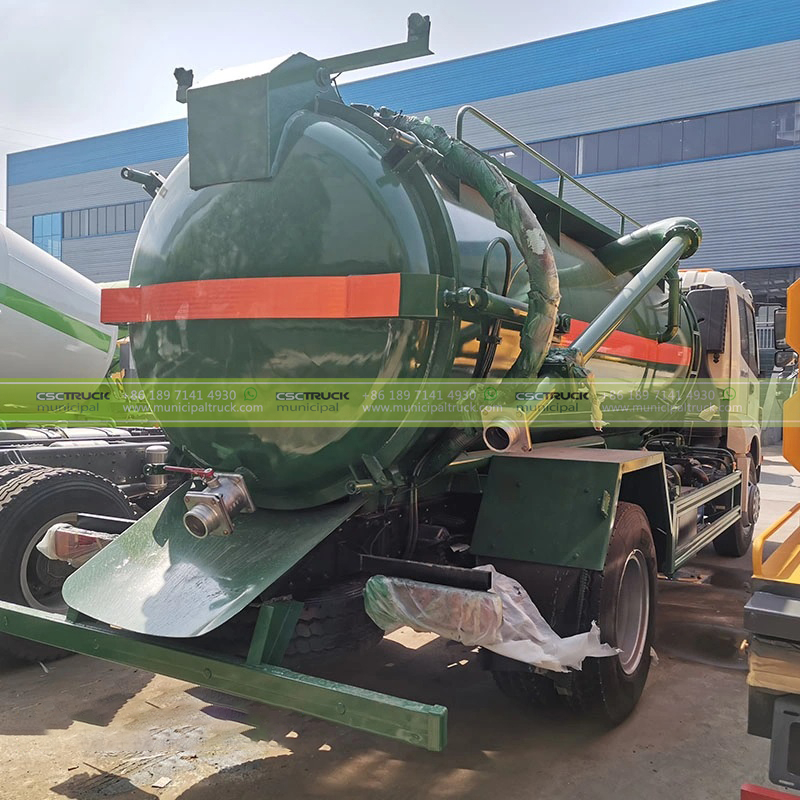
Advanced Features of Sludge Collector Trucks
1. High-Capacity Tanks for Sludge Storage
Large Volume Capacity
Sludge collector trucks are equipped with high-capacity tanks that can hold substantial volumes of sludge, making them ideal for handling large-scale industrial waste. These tanks are typically made from corrosion-resistant materials, such as stainless steel or heavy-duty polymers, to ensure that they can withstand the harsh chemical composition of sludge without degrading over time. The ability to store large volumes of sludge allows these trucks to complete waste collection tasks more efficiently, reducing the number of trips required to transport sludge to disposal facilities.
Reinforced Tank Construction
The tanks on sludge collector trucks are designed to handle the weight and density of sludge, which can be much heavier than other types of waste. Reinforced tank construction ensures that the truck can safely transport sludge without risking damage to the vehicle or compromising safety. These tanks are often built with multiple compartments to separate different types of sludge or to allow for easier cleaning and maintenance between trips.
2. Powerful Vacuum System
Efficient Loading and Unloading
One of the most important features of sludge collector trucks is their powerful vacuum system, which allows for the efficient loading and unloading of sludge. The vacuum system is designed to create a strong suction force that can easily pull sludge from storage tanks, industrial vats, or other containers into the truck’s holding tank. This system significantly reduces the time and effort required for sludge collection, making the process much faster and more efficient compared to manual loading methods.
Preventing Spillage and Contamination
The vacuum system is also designed with safety in mind, ensuring that sludge is loaded and unloaded in a controlled manner to prevent spillage or contamination of the surrounding environment. Advanced sealing mechanisms and safety valves help to contain the sludge during transport, minimizing the risk of leaks that could pose environmental hazards. This feature is particularly important when handling hazardous industrial waste, as even small spills can have serious consequences for both human health and the environment.
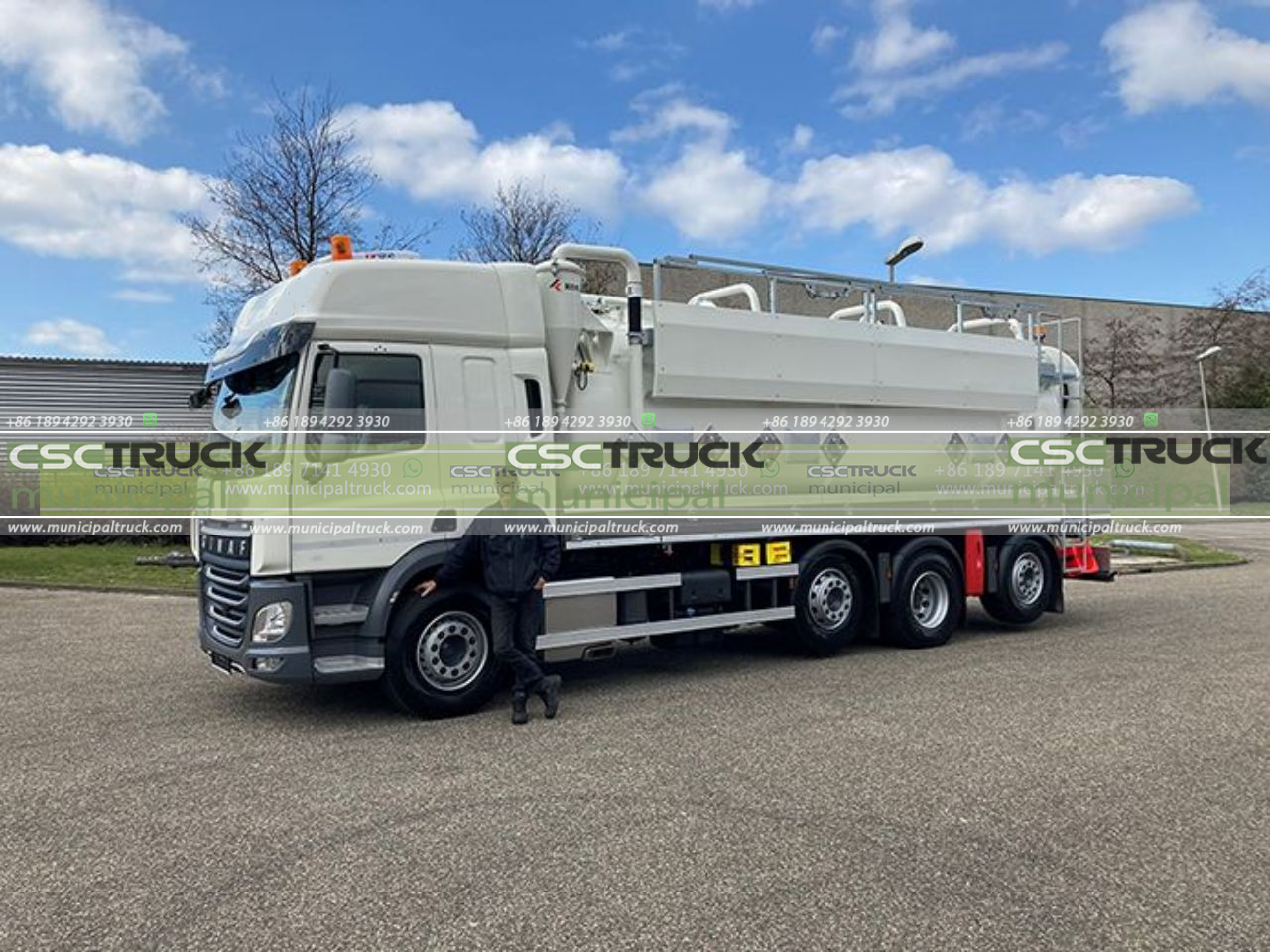
3. Advanced Filtration and Ventilation Systems
Odor Control
Handling sludge can be an unpleasant task, particularly due to the strong odors that are often associated with this type of waste. Sludge collector trucks are equipped with advanced filtration and ventilation systems that help to control and reduce odors during collection and transport. These systems use high-efficiency filters to trap and neutralize odor-causing particles, ensuring a more pleasant working environment for operators and reducing the impact on surrounding communities during transport.
Protecting the Environment
In addition to controlling odors, these advanced filtration systems help to reduce the release of harmful gases and pollutants into the atmosphere during sludge collection and transport. By capturing and filtering out harmful emissions, sludge collector trucks contribute to cleaner air quality and help industries comply with environmental regulations related to air pollution. This feature is particularly important in industries that produce toxic or hazardous sludge, as it ensures that the transportation process does not inadvertently contribute to environmental degradation.
Operational Advantages of Sludge Collector Trucks
1. Increased Efficiency in Sludge Collection
Streamlined Collection Process
The design of sludge collector trucks allows for a streamlined and highly efficient collection process, significantly reducing the amount of time and labor required to handle sludge. The powerful vacuum system, large tank capacity, and advanced controls enable operators to quickly and easily collect sludge from multiple locations without the need for manual intervention. This efficiency is particularly beneficial in industries that generate large quantities of sludge, as it allows for more frequent collections and prevents the buildup of waste that could disrupt operations.
Reducing Downtime
Because sludge collector trucks are designed to handle large volumes of waste in a single trip, they help reduce the downtime associated with waste collection activities. Fewer trips to and from disposal facilities mean that businesses can focus on their core operations without being interrupted by frequent waste collection tasks. This increased operational efficiency not only saves time but also helps reduce costs associated with waste management, making sludge collector trucks a cost-effective solution for industries that generate significant amounts of waste.
2. Compliance with Environmental Regulations
Ensuring Safe Waste Disposal
Industries that produce sludge are often subject to strict environmental regulations governing the collection, transport, and disposal of this type of waste. Sludge collector trucks are designed to help businesses comply with these regulations by providing a safe and efficient means of handling sludge in accordance with legal requirements. From spill prevention to air filtration, these trucks are equipped with the necessary features to ensure that sludge is transported safely and disposed of properly, minimizing the risk of regulatory violations and fines.
Supporting Sustainability Goals
Many industries are increasingly focused on improving their sustainability practices, and proper waste management is a key part of these efforts. Sludge collector trucks play a vital role in supporting sustainability goals by ensuring that sludge is disposed of in an environmentally responsible manner. Whether through recycling, treatment, or safe disposal, these trucks help industries minimize their environmental impact and contribute to the overall sustainability of their operations.
Versatility and Adaptability of Sludge Collector Trucks
1. Adaptability to Different Types of Sludge
Handling a Variety of Waste Materials
Sludge collector trucks are designed to handle a wide variety of sludge types, from thick industrial slurries to more liquid forms of waste produced by municipal sewage systems. This versatility makes them suitable for use in a range of industries, including wastewater treatment, food processing, chemical manufacturing, and oil refining. The ability to handle different types of sludge with a single vehicle reduces the need for multiple specialized trucks, making sludge collectors a more cost-effective and flexible solution for industrial waste management.
Adjustable Suction Power
The suction power of sludge collector trucks can often be adjusted to suit the specific characteristics of the sludge being collected. For thicker, more viscous sludge, operators can increase the suction power to ensure efficient loading, while for more liquid forms of waste, lower suction settings may be used to prevent overloading the system. This level of adjustability ensures that the truck can handle a wide range of sludge materials without compromising on efficiency or safety.
2. Flexibility in Industrial Applications
Supporting a Range of Industries
Sludge collector trucks are used in a wide variety of industrial applications, making them a versatile tool for businesses involved in waste management. In addition to wastewater treatment plants, these trucks are commonly used in industries such as food and beverage production, oil and gas, and chemical processing. The ability to transport different types of sludge across various industries ensures that sludge collector trucks remain a critical component of industrial waste management strategies.
Operating in Challenging Environments
Sludge collector trucks are designed to operate in challenging industrial environments, where conditions may be less than ideal for traditional waste collection methods. These trucks are built to handle harsh weather, rough terrain, and confined spaces, making them ideal for use in both urban and rural settings. Whether operating in a large manufacturing facility or a remote industrial site, sludge collector trucks offer the flexibility and durability needed to ensure efficient waste collection in any environment.
Maintenance and Safety of Sludge Collector Trucks
1. Importance of Regular Maintenance
Ensuring Long-Term Reliability
Like all heavy-duty vehicles, sludge collector trucks require regular maintenance to ensure their long-term reliability and performance. This includes routine inspections of the vacuum system, tank, and filtration components, as well as regular cleaning and servicing to prevent buildup of sludge residue inside the tank. By maintaining the truck in good working condition, businesses can avoid costly breakdowns and ensure that their waste collection operations continue to run smoothly.
Preventing Equipment Failure
Proper maintenance of sludge collector trucks also helps to prevent equipment failure, which can be particularly problematic when handling hazardous industrial waste. Regular servicing of the truck’s hydraulic and vacuum systems ensures that they remain in optimal working order, reducing the risk of system failures during sludge collection or transport. This proactive approach to maintenance helps to minimize downtime and ensures that the truck remains safe and reliable in even the most demanding waste management operations.
2. Operator Safety and Training
Safety Features for Operators
Sludge collector trucks are equipped with a variety of safety features designed to protect operators during the waste collection process. These features include automatic shutoff systems, which prevent the truck from being overloaded, and emergency stop buttons that allow operators to quickly halt the vacuum system if necessary. Additionally, many trucks are fitted with rearview cameras and other visual aids to improve visibility and reduce the risk of accidents during operation.
Training for Safe Operation
Proper training is essential for ensuring the safe operation of sludge collector trucks. Operators must be familiar with the specific controls and safety features of the truck, as well as the proper procedures for loading and unloading sludge. Comprehensive training programs help to reduce the risk of accidents and ensure that operators can handle the challenges of sludge collection with confidence and efficiency.

